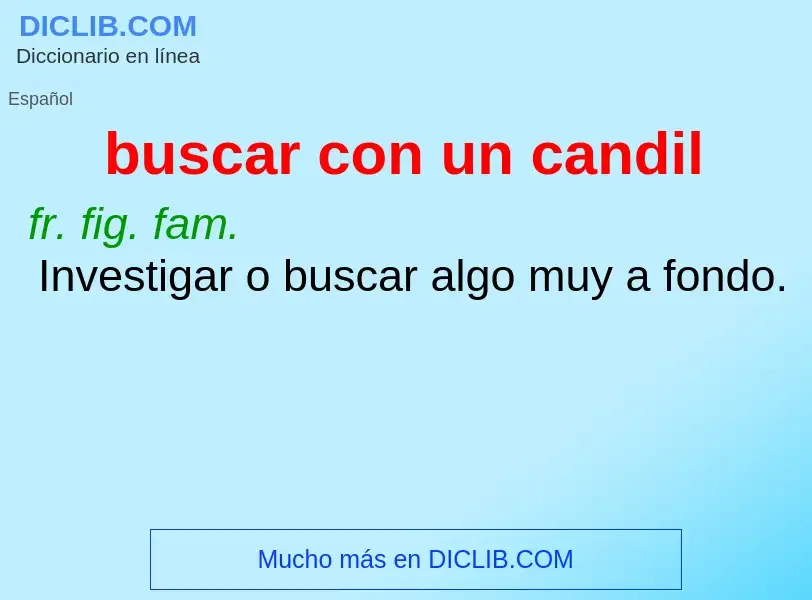Enter a word or phrase in any language 👆
Language:
Translation and analysis of words by artificial intelligence
On this page you can get a detailed analysis of a word or phrase, produced by the best artificial intelligence technology to date:
- how the word is used
- frequency of use
- it is used more often in oral or written speech
- word translation options
- usage examples (several phrases with translation)
- etymology
What (who) is buscar con un candil - definition
EPISODIO DE CHARMED
Cita con un muerto
buscar con un candil
fr. fig. fam.
Investigar o buscar algo muy a fondo.
Una lengua es un dialecto con un ejército y una marina
AFORISMOS MÁS CITADOS EN LAS DISCUSIONES SOBRE LA DIFERENCIA ENTRE LO QUE ES UN DIALECTO Y LO QUE ES UNA LENGUA
Una lengua es un dialecto con un ejército y una armada; Una lengua es un dialecto con un ejercito; Una lengua es un dialecto con un ejercito y una armada; Una lengua es un dialecto con un ejército; Una lengua es un dialecto con un ejercito y una marina; Una lengua es un dialecto con un ejército y una flota
«Una lengua es un dialecto con un ejército y una marina» a veces citado como «un idioma es un dialecto con un ejército detrás» es uno de los aforismos más citados en las discusiones sobre la diferencia entre qué es un dialecto y qué es una lengua. Ilustra el hecho de que el estatus político de los hablantes influye en el estatus percibido de su lengua o dialecto.
El príncipe Baltasar Carlos con un enano
CUADRO DE DIEGO VELÁZQUEZ
El principe Baltasar Carlos con un enano
}}
Wikipedia
Dead Man Dating
«Dead Man Dating» es un capítulo de la serie Charmed, emitida por la WB en EE. UU.


